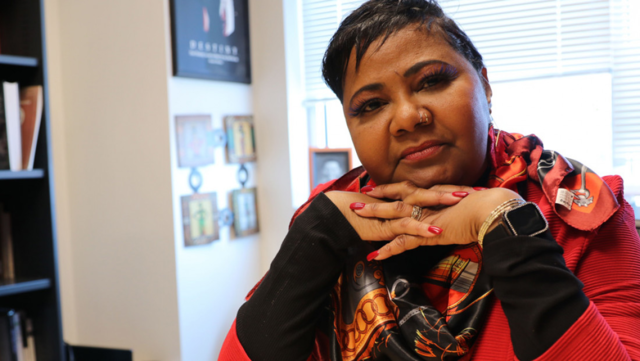I (Ford) was reading a commentary on the top number of “issues” facing education/ educators and became even more outraged and indignant on terminology used to describe children who live in poverty, Blacks, and other minoritized students. My colleagues and I believe this framing and mislabeling are the real ‘issues’, which we use interchangeably with ‘problems’. As minoritized individuals and scholars, we must set the record straight on several real ‘issues/problems’ confronting students of color. We also offer culturally-grounded recommendations for educators to adopt in order to be more effective with low-income students and students of color; in this same spirit, the recommendations are offered to help marginalized students experience schools as affirming places in every level of education. 
Student diversity is not an issue. We must stop (mis)interpreting ‘diversity’ and minoritized students as being so different from white students that they are unteachable and unreachable; that is, educators must stop seeing non-white students as problems and issues to be ‘solved’ rather than taught. Such terminology and subsequent beliefs, behaviors, and actions hinder the ability of educators and decision makers (e.g., teachers, school board members, superintendents, principals) and policy makers to see, appreciate, and honor the cultural capital that students of color bring to education, counseling, and mental health services. Colorblindness/cultureblindness and cultural assaults are unacceptable, to say the least, as delineated below.
a. Counseling & mental health. In school counseling and mental health counseling, counselor educators get extensive preparation in socio-emotional learning (SEL). This is necessary but must include intentional and proactive scholarship and resources on racial identity development. An understanding of racial identity development and pride must be included in all SEL discussions and curricula; and in coursework and professional development. Moreover, school counselors are in a position to impact the academic achievement of students of color, as well as contribute to closing opportunity gaps through collaboration with other school personnel and using data-driven approaches. Further, school counselors must be trained in using an equity-based lens to help students of color explore various career options and postsecondary opportunities in preparation to enter a global, diverse, and technological workforce. Finally, school counselors can assist students by providing short- term mental health services to eliminate obstacles to academic success (American School Counseling Association).
b. Special education over-referrals and overrepresentation. Decades of studies, along with the lived experiences of minoritized families/caregivers demonstrate that racialized/race-based deficit thinking by educators contributes to the unnecessary (over)referrals of minoritized students, especially Black males, Black females, Latinx males, and Latinx females, respectively, to high-incidence and stigmatized special education areas (e.g., intellectual disabilities, emotional and behavioral disorders, learning disabilities, ADHD, developmental delays). When cultural ways of being and cultural differences are framed as assets rather than problems, unnecessary special education referrals, labeling, and placements will decrease.
c. Disciplinary overrepresentation. There is a litany of national, state, and district information – studies and lived experiences -- on the hyper-policing and unjust profiling of Black bodies – at all ages. Even in early childhood, Black boys and girls are inequitably suspended and expelled. The Office for Civil Rights (https://ocrdata.ed.gov/assets/downloads/crdc-DOE-Discipline-Practices-in-Preschool-part1.pdf) paints a truly disturbing picture of the school-to-prison pipeline where our children are adultified; the presumption of innocence is not applied to them. We are reminded of Upchurch’s ‘convicted in the womb’.




















